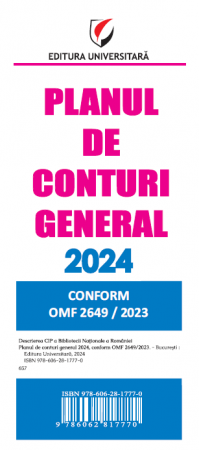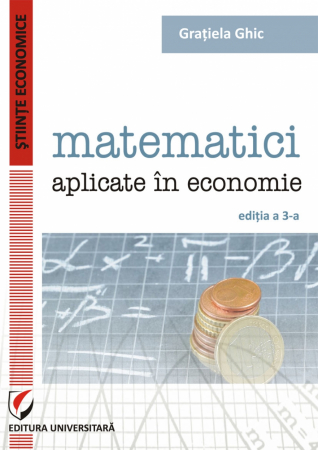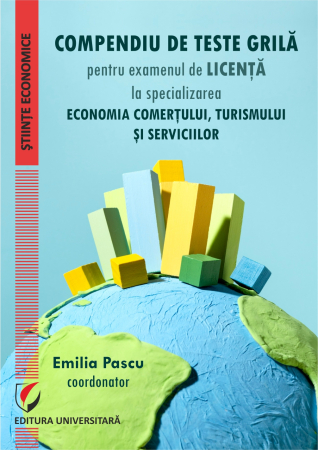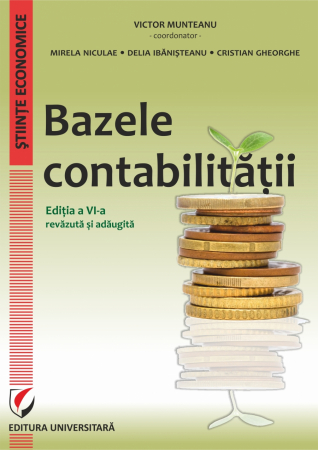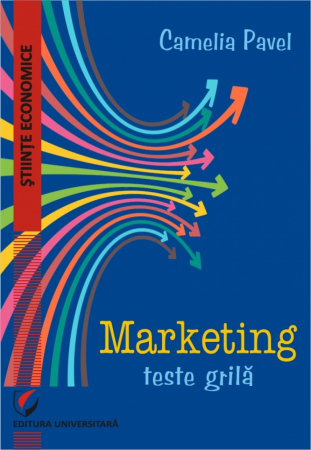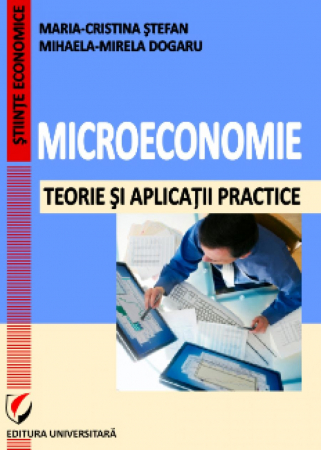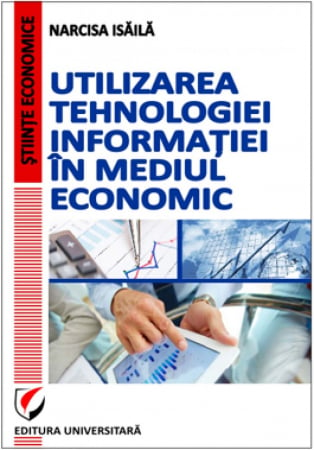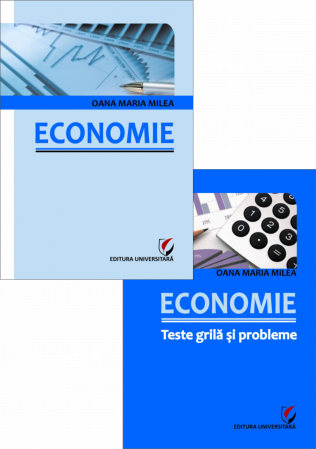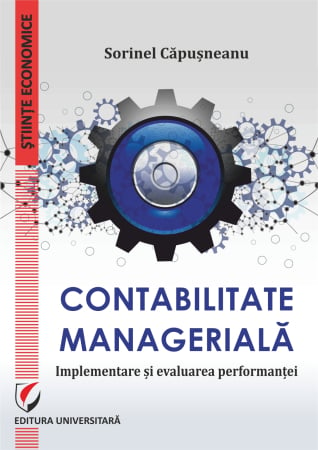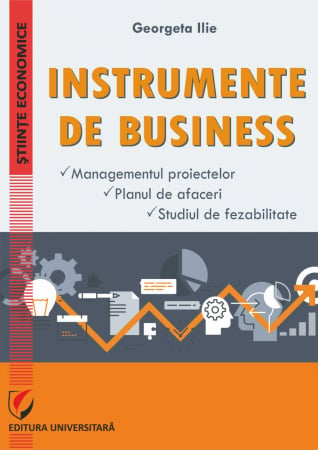Publisher: Editura Universitară
Author: Sorinel Capusneanu, Cristina Otilia Constantin, Ionica Oncioiu, Dan Ioan Topor, Ileana-Sorina Rakos, Constantin Aurelian Ionescu
ISBN: 978-606-28-1260-7
DOI: https://doi.org/10.5682/9786062812607
Publisher year: 2021
Edition: I
Pages: 244
- Description
- Download (1)
- Authors
- Content
- More details
- Reviews (0)
This paper is an exploratory research in the field of Cost Management and a challenge to adapt to the new requirements imposed by digitalization and sustainability. The issuance of correctly substantiated managerial decisions is based on solid information whose main supplier, management accounting, plays an essential role in establishing future business strategies and adapting to the business environment, image and reputation of companies.
The content of this paper represents a solid starting point in identifying the answers to the requirements of the business environment and all stakeholders in the development of multilateral communication and interaction relationships, through which the gain is mutual. This specialized paper is addressed both to students from economic faculties, with the aim of presenting and familiarizing them with issues related to cost management, and to all those interested, theorists and practitioners, eager to know significant aspects of cost management in a economic entities.
The Authors
-
Cost Management
Download
CRISTINA OTILIA CONSTANTIN
IONICA ONCIOIU
DAN IOAN TOPOR
ILEANA-SORINA RAKOS
CONSTANTIN AURELIAN IONESCU
Preface / 7
Chapter 1. Cost management between traditional and modern / 11
1.1. Traditional cost management and its limits / 12
1.2. Cost management and its contemporary trends / 15
1.3. Cost management and the digital economy / 16
1.4. Principles of efficient cost management / 17
Bibliographic references / 22
Chapter 2. Costs. Concepts, typology, inductors and allocation / 26
2.1. Conceptual approaches to costs / 27
2.2. Typology of costs / 27
2.3. Cost inducers / 38
2.4. Cost allocation / 40
Bibliographic references / 48
Chapter 3. Cost budgeting / 49
3.1. Budgets. Conceptual approaches, features, functions and principles / 49
3.2. Typology of budgets / 53
3.3. Cost estimation / 55
3.3.1. Cost estimation methods / 60
3.3.2. Stages of preparing the cost estimate / 62
3.3.3. Credible cost estimation / 65
3.3.4. Advantages of cost estimation / 67
3.3.5. The role of stakeholders in cost estimation / 68
3.4. Cost evaluation / 71
3.4.1. Measurement and evaluation of resources / 75
3.5. Elimination of costs / 78
3.6. Elaboration, monitoring and control of budgets / 79
3.6.1. Budgeting and sales control / 79
3.6.2. Budgeting and control of production and production costs / 83
3.6.3. Budgeting and control of supplies / 92
3.6.4. Budgeting and investment control / 95
3.6.4.1. Ways to evaluate the economic profitability of an investment / 96
3.6.4.2. Financing plan / 99
3.6.4.3. Budgeting and monitoring of investments / 100
3.6.5. Budgeting and control of the treasury / 103
3.7. Advantages and disadvantages of traditional budgets / 114
3.8. Activity-Based Budgeting / 116
3.9. Advantages and disadvantages of activity-based budgeting / 122
Bibliographic references / 122
Chapter 4. Control and cost analysis / 125
4.1. Cost control / 125
4.2. Types of cost analysis and control / 127
4.3. Deviations from pre - calculated (planned) costs / 128
4.4. Standard-Cost Accounting Method / 129
4.5. Control and analysis of operational deviations / 132
4.6. Peculiarities of the standard cost method. Methodological case studies on evidence, analysis and cost control / 141
Bibliographic references / 160
Chapter 5. Total cost management and partial cost management / 161
5.1. Total cost management / 162
5.1.1. Method ABC / ABM / 162
5.1.1.1. Stages of the Activity-Based Costing (ABC) / 164 method
5.1.2. Target Costing Method / 182
5.1.2.1. Purpose and stages of the target cost method (Target Costing) / 184
5.2. Partial cost management / 195
5.2.1. Direct-Costing method / 195
5.2.2. Indicators / specific to the variable cost method (Direct-Costing) / 202
5.2.3. Advantages and disadvantages of the variable cost method (Direct-Costing) / 204
5.2.4. Variants of the variable cost method (Direct-Costing) / 208
5.2.4.1. Simplified version of the Direct-Costing / 208 method
5.2.4.2. Evolved version of the Direct-Costing / 215 method
5.2.4.3. Calculation of coverage of fixed expenses / 224
Bibliographic references / 236
Selective bibliography / 240
In the current context, economic entities are interested in adapting as well as possible to the social needs of the community in which we live, so that this paper is based on a thorough theoretical and practical documentation, equally capitalizing on the experience of authors in this field. of the Romanian economy. The documentary material synthesized in this specialized paper presents the complexity and implicitly the dimension of this vast field of cost management.
Through this paper we propose practical solutions regarding the implementation of business concepts or practices meant to increase the contribution to scientific development and the contribution of knowledge at academic and business environment level. The issuance of correctly substantiated managerial decisions is based on solid information whose main supplier, management accounting, plays an essential role in establishing future business strategies and adapting to the business environment, image and reputation of companies. For this reason, we consider the content of this paper as a solid starting point in identifying the answers to the requirements of the business environment and all stakeholders in the development of multilateral communication and interaction relationships, through which the gain is mutual.
This general presentation of this paper highlights the fact that each chapter contains interesting elements whose potential and degree of interest open new directions for future research. Focusing on current issues shows the interest in connecting to the current effervescent state of the business environment in a continuous adaptation to sustainable development.
Chapter 1 "Cost management between traditional and modern" presents a parallel between traditional cost management and contemporary cost management. The limits of traditional cost management are presented, as well as its contemporary trends, emphasizing its role and importance in the digital economy and the stages that are taken in order to implement Industry 4.0. At the end of the chapter, the principles of efficient cost management are presented in detail.
Chapter 2 “Costs. Concepts, typology, inductors and allocation” presents in a descriptive and practical way the concepts of costs and cost inductors. Choosing as a starting point the established approaches of specialists in the field of cost management, the characteristics and the component of costs are highlighted, achieving a classification according to the most important criteria that underlie the decision-making process. The authors also present the criteria underlying the choice of cost drivers in the process of allocating indirect costs on the calculation object, presenting the specific allocation procedure with the stages that are followed within it. The chapter is sprinkled with numerous applications, graphics and examples designed to facilitate the easiest understanding of how to determine, calculate and allocate costs.
Chapter 3 "Cost Budgeting" combines the theoretical part with the traditional application, trying to bring to the fore the steps involved in cost budgeting. Based on national and international literature, the authors present the main conceptual approaches, features, functions and principles of cost budgeting. After identifying the budget categories according to their typology, the budgeting stages of an economic entity are described in detail and as an example. Thus, in the cost estimation stage are described the methods regarding the cost estimation, the preparatory stages for the cost estimation, their advantages and the role of the interested parties in their estimation. After measuring and evaluating the resources within the budgets, the costs are eliminated. In the stage of elaboration, monitoring and control of budgets, the authors presented and exemplified the budgeting and control of sales, supplies, production and production costs, investments and treasury. Based on the findings, the main advantages and disadvantages of traditional budgets are identified. At the end of the chapter is also described the method of activity-based budgeting (Activity-Based Budgeting) with its main advantages and limitations.
Chapter 4 "Cost control and analysis" details some theoretical-methodological aspects specific to the standard cost method (Standard-Cost Accounting) related to highlighting the deviations from the pre-calculated costs on its three variants. The methodological studies reflect the calculation method of the deviations depending on the typology of the costs used and are meant to clarify some aspects with applicative character.
Chapter 5 "Total cost management and partial cost management" makes a delimitation in cost management according to the nature of costs in: total and partial. The authors present three modern methods used in managerial accounting: the ABC / ABM method, the Target Costing method and the Direct-Costing method. All methods are highlighted from
point of view of the national and international specialized literature through the prism of the conceptual approaches, the development stages, the methodological stages and the registration in the managerial accounting. For the accounting highlighting, the dissociated organization of the managerial accounting was used with the accentuation of the symbolism and the renaming of certain accounts provided in Class 9 “Management accounts” from the General Plan of accounts in our country. The chapter ends with the presentation of the advantages and limitations of the above-mentioned methods.
Through this specialized paper, the authors address both students from economic faculties with the aim of presenting and familiarizing them with issues related to cost management, and all those interested, theorists and practitioners, eager to know the significant aspects of cost management in within an economic entity. Without claiming an exhaustive and comprehensive work, we express our conviction that this work will be a real support for all those who will have the curiosity and patience to go through its content and understand the secrets of cost management practiced within an economic entity.
The Authors

6359.png)
![Cost Management [1] Cost Management [1]](https://gomagcdn.ro/domains/editurauniversitara.ro/files/product/large/cost-management-3087-3331.jpg)

